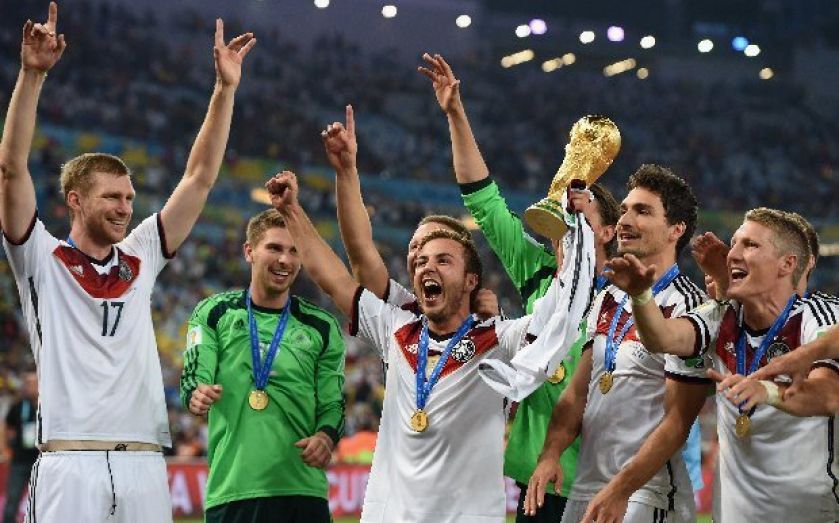| Updated:
Mario Gotze’s winner ensures Brazil World Cup is best ever for goals scored

As substitute Mario Gotze raced into the penalty area, executed the perfect chest control and slotted the ball beyond Argentinian goalkeeper Romero, he did not only win the World Cup for Germany. He also ensured that Brazil 2014 would go down in history as the World Cup with the most goals, equalling the 171 goals scored in France 1998.
Just ten games in, the tournament was being hailed as the best ever, with drama and goals in abundance.
In fact, the first four days of the competition saw 37 goals, the most exciting start to a tournament since 1958 in terms of scoring – and on that occasion there was a 7-3 victory to inflate the numbers.
To the delight of football fans across the globe, the free-scoring start to the tournament showed no sign of tapering off. At the halfway point of the World Cup in terms of matches, teams had netted 94 times, more than at any of the seven tournaments before that.
But as the stakes increased and the goals stopped flowing in at the same pace during the knockout rounds, the fear was that this World Cup was in danger of petering out after the flying start.
Brazil's leaky defence made sure that was not the case, as the host nation conceded seven in their mauling from Germany and another three on Saturday night against the Netherlands.Germany's record-breaking 7-1 win went against the trend of tense, hard-fought, close affairs that threatened to put an end to the dream of a World Cup goal record tally.
So with 171 goals, the 2014 World Cup saw an average of 2.67 goals per game, joining France 98 as the highest scoring World Cup since the tournament moved to a 64-game format.
Given the free-scoring start to the tournament that we enjoyed, it is no surprise that, with a total of 136 goals at 2.83 per game in the group stages, Brazil has been the second highest scoring World Cup since the free-flowing tournaments of the 1950s.
Why the goalfest?
An explanation offered early on in the tournament as the goals started pouring in was that teams seemed prepared to attack more. As Adam Bate wrote in his article for Sky Sports after the first few games, England’s attacking mentality against Italy – compared that to their 2012 performance against the same side – has been indicative of an offensive approach.
This continued throughout the tournament and while the knockout rounds were considerably tighter and were more tense affairs, teams were still been prepared to go forward. The last 16 encounter between Belgium and the USA may have ended 0-0 however the game was open and exciting, end-to-end at times. Had it not been for Tim Howard's remarkable performance between the sticks, we could have seen this World Cup climb above France 98.
Even the final, while a tactical encounter and with just one goal seven minutes from time, chances were there for the taking; it was a failure to convert rather than to create that led to extra time, especially in the case of Leo Messi's Argentina.
Undoubtedly, the first few games were helped along by a number of early goals. In the first 21 matches a team opened the scoring inside the first half. This perhaps forced teams to come out from defence and go forward in search of an equaliser, lending itself to more expansive football.
Not just the goals
In the 48 matches of the group stage, World Cup sides played out a draw on just nine occasions. According to some number crunching from Forbes, that number is the lowest number since the eight group-stage draws in 1994 – a year which featured two fewer groups. The four tournaments in between have averaged 13 draws in the group stage.
But the goals have only been half the fun and as the inevitable slowdown happened in the knockout phase, with the 16 games yielding just 35 goals, including the eight scored in Germany's drubbing of Brazil, it has still been fascinating to watch.
Gotze's extra time winner was a record 32nd time a substitute netted at this World Cup, a sign of the late goals that tactical switches have resulted in, ensuring that Brazil 2014 goes down in history as one of the most exciting World Cups in history.